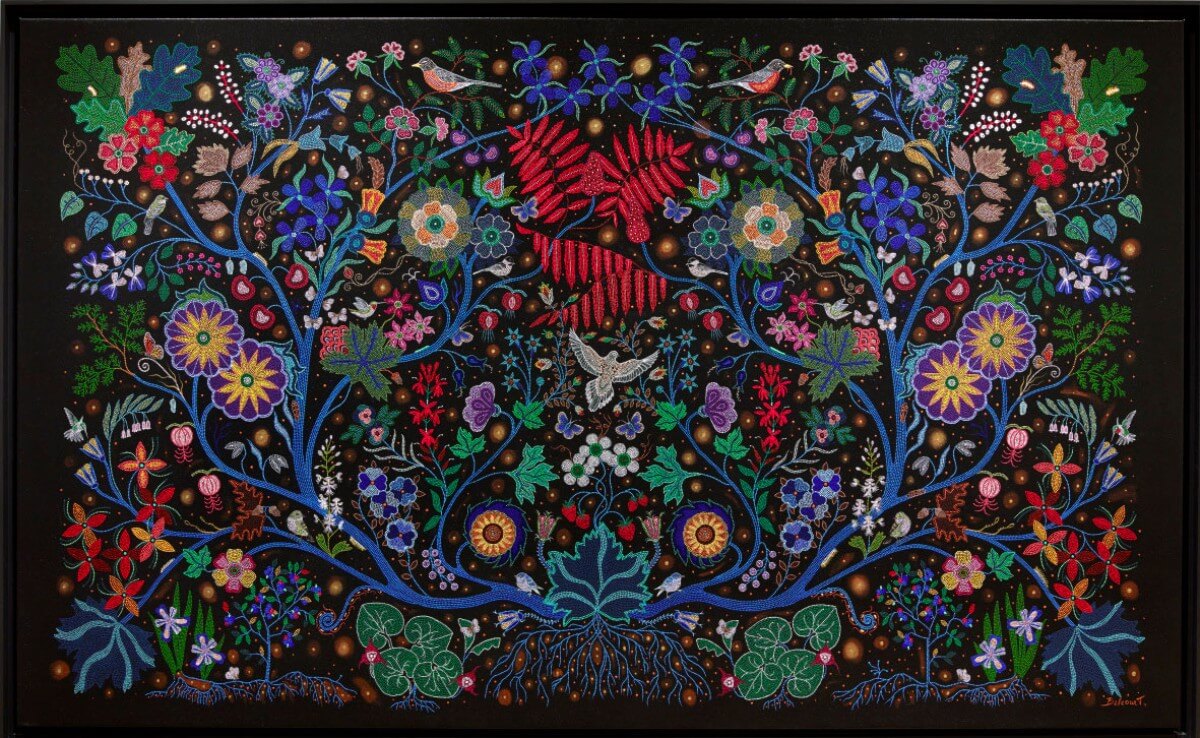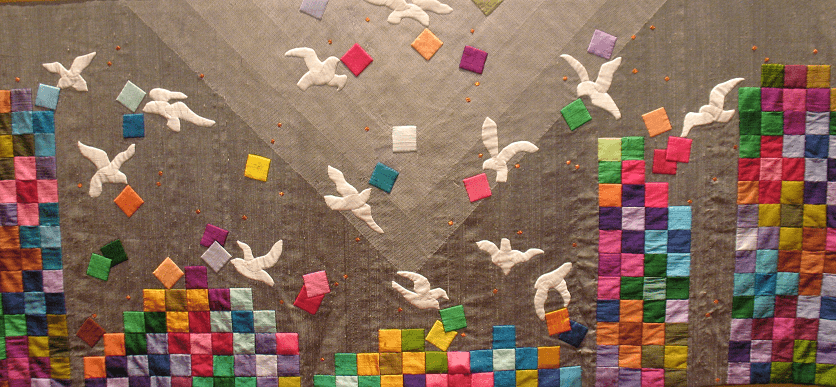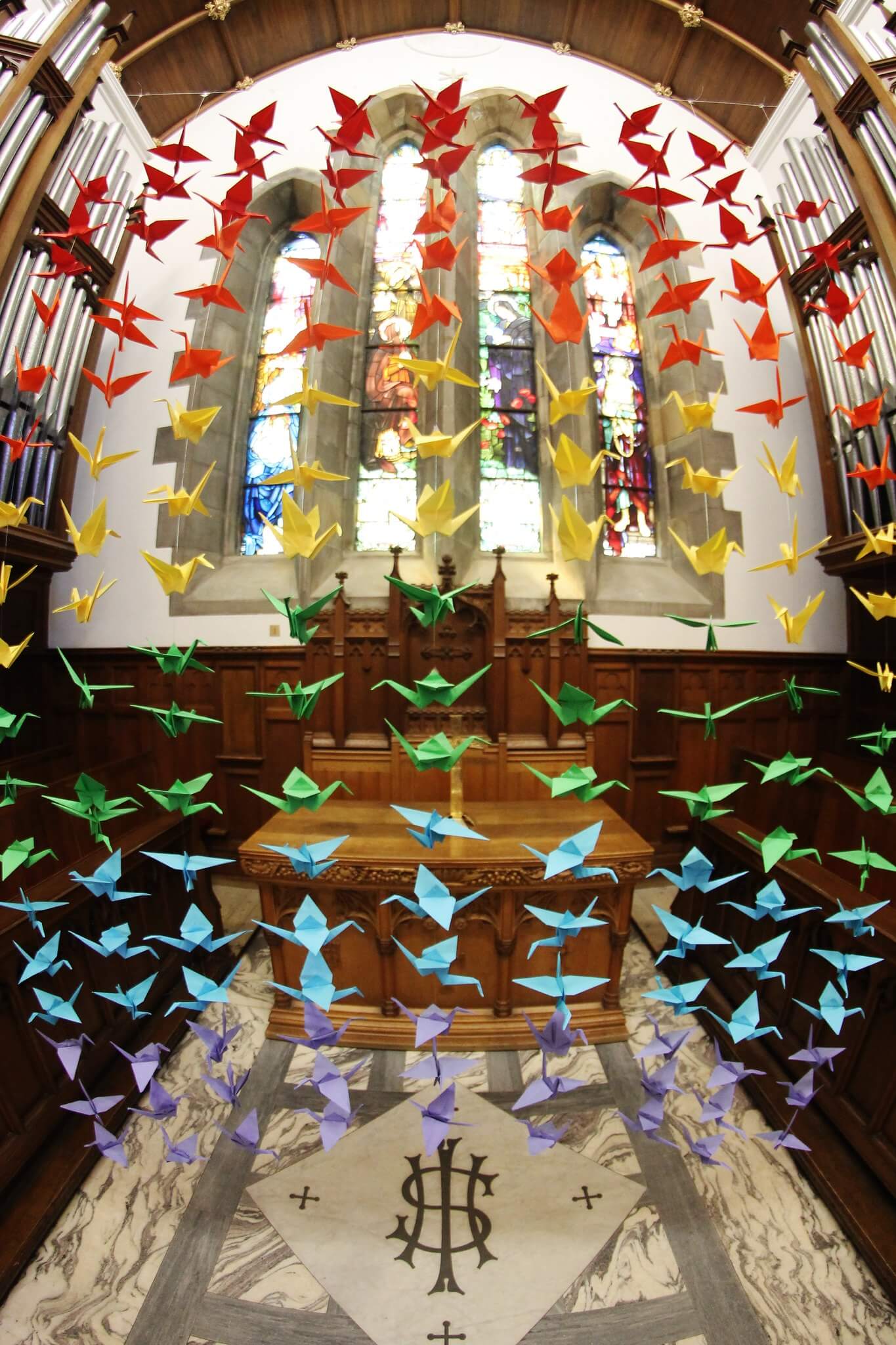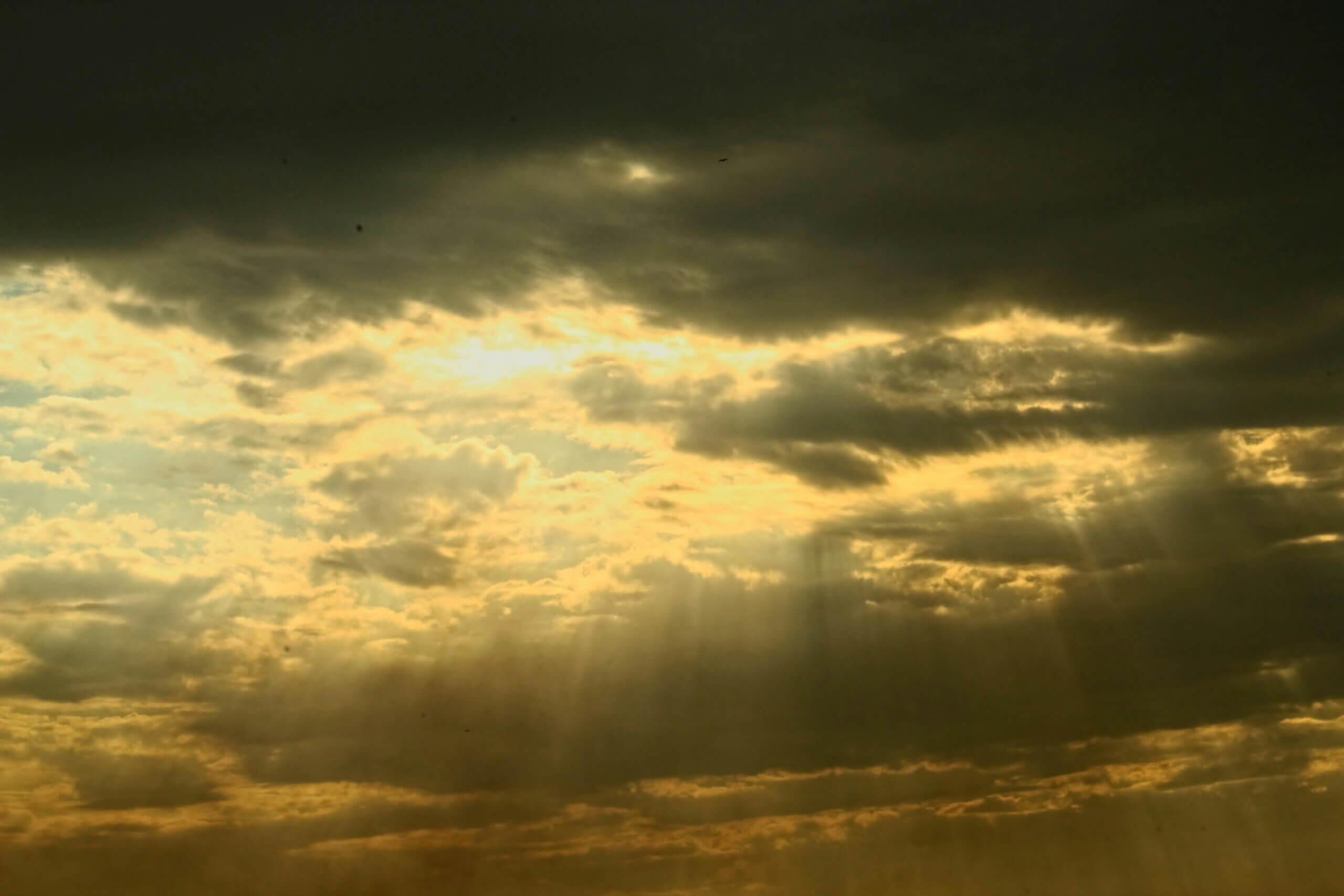Fourth Sunday in Lent Homily March 17, 2012.
Readings cited: Numbers 21:4-9 John 3:14-16
Sometimes at Holy Trinity we have sung an African American hymn that goes “Soon and very soon, we will see the Promised Land.” I’ve never been altogether comfortable with that hymn for reasons I won’t go into at the moment, but certainly, in the reading we heard today from the Hebrew Bible, the people of Israel weren’t singing that hymn as they stumbled their way through the wilderness. They were grumbling and complaining and wishing they had never left the land of Egypt. They hated the rotten food and to top it all off, they were attacked by venomous snakes. Not a promising picture.
Now in the book of Numbers – and incidentally, the name for this book in the Hebrew bible is simply “In the Wilderness” . It’s called Numbers in our version because it begins with detailed instructions about the enumeration of the Israelites in a census – in the Book of Numbers, Jaweh is seen as having a hand in everything that happens, so it seemed it was Jaweh who had afflicted the people with snakes, presumably J’s response to all their griping after he had liberated them from slavery in Egypt and was leading them through the wilderness, supposedly towards the promised land. In their desperate state the people begged Moses to DO something now that they saw that all their complaining had been a waste of energy and, furthermore, an offense to Jaweh. In response to Moses’ plea, J told him to make a fiery serpent, set it on a pole, and those who had been bitten, when they looked up to the serpent, would live.
I can mention in passing but don’t need to elaborate on the point that the snake was widely regarded as a fertility symbol in Canaanite religion, and clearly, in today’s reading it IS presented as a life-giving symbol. The traditional Jewish interpretation of this passage is that the uplifted serpent drew the hearts of the Israelites back up to God, the source of their liberation and salvation. At any rate, in the Numbers account we heard just now, by looking up to that symbol, the people were enabled to live and continue their journey in search of the promised land.
Now when we turn to the passage in John’s gospel, you will recall that there is a reference back to this story in Numbers. “As Moses lifted up the serpent in the wilderness, so must the Son of Man be lifted up….” and the Greek word (hypsothenai) carries both the suggestion of being lifted up in suffering on the cross and being lifted up, triumphant, in the resurrection. As in the book of Numbers, the response to Jesus “lifted up” – crucified and risen – is a response to what is, in fact, life giving. That’s what John’s Gospel is saying and it’s a theme repeated at many points in that Gospel.
So what do we make of this in terms of our own life’s journey with our different abilities and different circumstances?
It’s interesting to consider moments in our own experience that are, in some fashion or other, “life giving.” I say “in some fashion” because there are a whole range of occasions extending from the relatively trivial to the really inspiring when we feel a surge life, energy, hope, and perhaps euphoria. I can get charged up when the Maple Leafs win a hockey game and the point is often made that in our culture hockey arenas and football stadiums are settings for a kind of drama that is accompanied by what could easily be called religious fervour. One’s life and identity is tied up with the fortunes of a hockey team! The euphoria is transient (especially in Toronto) but at the time, pretty exhilarating. For some people, maybe it’s a rock concert that does it. For the more sophisticated, the great performance of an opera or a symphony concert. For others, perhaps a major achievement of some kind: for a scientist, a scientific breakthrough, or, for average folk, the completion of a really important project. And so on. I think it’s important to try to unscramble our experience and identify what genuinely empowers, what is really worth living for, or, to push the point even further (as Sherman did in his homily a couple of weeks ago), worth dying for.
It’s interesting how certain expressions can be trivialized without our even thinking about it. A common expression these days is “It’s to die for” referring maybe to a delicious dessert or a vacation spot in the Caribbean.
This past week I was re-reading Vaclav Havel’s book Living in Truth where what’s worth living for and what’s worth dying for is a major theme. It was a book written before the Velvet Revolution in Czechoslovakia, when Havel was living dangerously as a vocal dissident in Prague under communist rule. In a wonderful essay in that book called “The power of the powerless” he writes
“A person who has been seduced by the consumer value system, whose identity is dissolved in an amalgam of the accoutrements of mass civilization, who has no sense of responsibility for anything higher than (personal interests) or personal survival is a demoralized person. (The moral has been evacuated).The system depends on this demoralization. Living in truth, is, on the contrary, an attempt to regain control over one’s life, to recover one’s sense of responsibility.” And remember Havel is writing of life under a brutally repressive regime but when he writes about the consumer value system, he is talking about both his own communist society of the time, and life in the so-called free world in the west.
Having that sense of responsibility for something beyond immediate self interest, is, I think, a crucial component of a meaningful journey, where a person is not just a function within a social/economic system.
Ok, reflecting on our respective journeys where we see ourselves as taking an active role – having agency as Lee likes to say – we have to take into account not just moments of empowerment, “peak experiences” as they are sometimes called, but also those times when we aren’t feeling all that empowered, when we are feeling the exact opposite. I sometimes have those moments at four in the morning when sleep seems elusive and the darkness of the night is reflected in a kind of darkness of the soul. And I wonder in those heavily freighted moments what is my life really all about and where is it headed? And I worry about practically everything. And then, when morning has broken – and especially if I’ve been asked to give a homily – I have to re-think all that “in the cold light of day” as I read the morning papers and consider the state of the world they describe, and ponder the fate of people in far off, strife-torn lands, and the state friends and family and, certain refugees whom I know personally and whose lives are at risk.
So where does one find the energy to move forward day by day, sometimes in face of very discouraging circumstances, energy that’s not just ignited by a pleasing distraction of the moment, but comes from something deeper that Vaclav Havel was talking about, from some more enduring source? I’ve read of people whose lives are driven in the corporate world and can’t take it any longer (think of the executive at Goldman Saks), but also those whose journeys have taken them into battlegrounds for social justice on some front or another, watched them burn out from sheer exhaustion. So where does the sustaining energy come from in journeys that are clearly worthwhile?
I don’t want to offer glib answers at this point but certainly participation in a strong community seems absolutely essential. But, of course, the best of communities are not exempt from crises and conflicts. What will happen later today in this community is an example of one of the greatest and deepest things that can happen in anyone`s life journey. Reconciliation of a conflict, of a deep and punishing estrangement is one of the most powerful, profound, and life giving experiences possible. We look forward to this, this afternoon.
As I reflected on the passage in St. John’s gospel that we heard this morning and parallel passages later in that gospel, I went back to a book I hadn’t read in years, a book by the Danish philosopher Soren Kierkegaard called Training in Christianity There`s a section in that book which is a meditation on those passages in John, a section where K makes a distinction between those who are – as he puts it – cultural admirers of Jesus, who acknowledge that Jesus was an extraordinary historical figure, and those who are followers.
Admirers see Jesus at a distance and commend his virtues, but followers seek to walk in his path – as best they understand it – and are nourished by faith that Jesus’ compassion is really the centre piece of life, the centrepiece of their own journey. Now we all recognize that there are many marvellous and wonderful things in this life –great pleasures extending from sexual ecstasies, to the glories of nature, to the most celebrative kinds of family gatherings, and so on –but what I`ve just referred to, Jesus’ embodiment of a loving compassionate life unto death can be – I believe is – the centrepiece. When we gather around the altar at the Eucharist and hear the words `this is my body given for you`, and the words `bread for the journey`, this is what we’re celebrating, a compassionate love that endures all things, forgives all things, that is at the heart of all things. Life creating and life sustaining, even in our darkest moments.
A final footnote. I have always been moved by Dante`s words in the Divine Comedy, the opening words of the Inferno: “In the middle of the journey of this life I found myself in a dark wood where the straight way was lost.” A not uncommon human experience. I reflect now, at a much later stage of that journey, when the path ahead no doubt holds new adventures and unforeseen challenges, that that communal setting in which we receive bread for the journey here in the Eucharist seems more important than ever.





